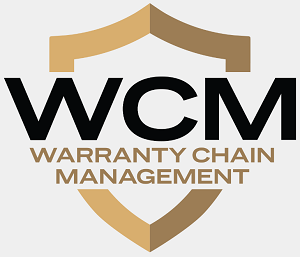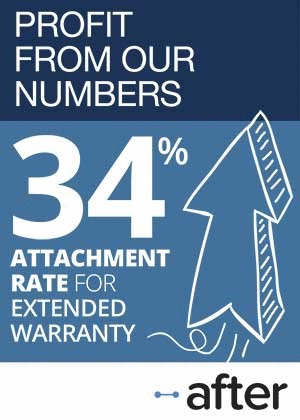Vehicle Service Contract Industry:
Consumers seem to prefer the term extended warranty. But industry professionals prefer the term service contract, even when they work for companies with the word warranty in their name. The problem is, there are at least three dozen other terms used to describe the product. Or is it a service? A service product?
As we continue our tour of the extended warranty industry, we've come across a problem regarding the terminology we're using to describe the automotive portion of the business. We thought we knew what to call it, but vehicle service contract turns out to be less popular than we suspected.
Towards the end of last year, we completed a tour of the home warranty section of the industry, acknowledging that the contracts being sold under that title don't actually cover the home. Instead, they cover just the major mechanical systems within the home, such as the boiler, furnace, and air conditioning, and many of the appliances located in the kitchen and laundry room.
The phrase "home warranty" is therefore a bit of a misnomer. Then again, as the great comedian George Carlin once asked, why do Americans drive on the parkway and park in the driveway? But seriously, why try to change the meaning of words and phrases that everyone understands?
As we begin the automotive section of the tour, however, we're finding some organized opposition to the continued use of the term "extended warranty." In last week's newsletter, we recounted how Helen MacMurray, a partner in the law firm of MacMurray, Petersen & Shuster LLP and the legal counsel of the Vehicle Protection Association, had urged the group to take the word warranty out of its name (it was initially called the Automotive Warranty Services Association), and how several VPA members had also removed the word warranty from their product offerings and even their company names.
Banning the Word Warranty?
They weren't merely trying to be less confusing. The VPA's new Standards of Conduct actually bans the use of the terms "warranty" or "extended warranty" to describe the service contracts its members sell. To be specific, the document states that:
Members shall not use in their company name, advertisements, sales solicitations or any other description of their products, words such as "warranty," "dealer," "dealership," "manufacturer" (including actual manufacturer's name; e.g. "Ford") or any other words that falsely imply that the company is somehow associated with the manufacturer of the motor vehicle.
We've always considered product warranties and extended warranties to be different sides of the same coin. One is a free guarantee issued by the manufacturer or seller of a product, which promises to repair any defects that appear within a specified period. The other is a policy sold separately by the manufacturer, retailer, or a third party, which extends the duration of that guarantee for additional years, and/or covers additional perils. Sometimes it also runs concurrently with the product warranty, but promises more convenient service and/or faster turnaround times, or provides some other elevated level of service such as next-day product replacements.
We've always considered extended warranties and service contracts to be nearly interchangeable terms. But what we've discovered upon further inspection is that outside of this thing of ours -- outside of this little cosa nostra of warranty professionals who know the language and speak it fluently -- those terms are not so easily convertible.
It's a simple question: "What's this industry called?"
But it's not such a simple answer.
Industry insiders seem to prefer the term "vehicle service contract" to describe what they sell, at least when they're talking with each other. But in public, at least within the billions of pages archived and organized by the Google search engine, the language they use seems to be quite different.
Tour of Warranty Search Terms
As the table below illustrates, the most popular terms found within the Google universe are "service agreement," "extended warranty," and "service contract," while the most popular automotive-specific terms are "vehicle protection plan," "extended vehicle coverage," and "extended auto warranty."
The term "vehicle service contract" was not among the most popular. In fact, "vehicle service contract" came in 21st on the overall list, and 13th among just the auto-specific terms. It was outranked by "extended car warranty," "car extended warranty," "vehicle extended warranty," and "auto extended warranty," among others. That's a bit unexpected, to say the least.
Extended Warranty Search Terms on Google
Number of Pages Found
January 21, 2010
| Search Term | Google Pages |
|---|---|
| service agreement | 4,160,000 |
| extended warranty | 3,650,000 |
| service contract | 3,020,000 |
| maintenance agreement | 597,000 |
| after-market warranty | 491,000 |
| extended service plan | 394,000 |
| vehicle protection plans | 326,000 |
| extended vehicle coverage | 244,000 |
| extended auto warranty | 166,000 |
| vehicle service agreement | 164,000 |
| extended vehicle service contract | 106,000 |
| car service contract | 96,500 |
| vehicle maintenance contract | 94,800 |
| extended car warranty | 69,200 |
| extended service contract | 68,900 |
| vehicle extended warranty | 66,200 |
| aftermarket warranty | 61,600 |
| car extended warranty | 58,600 |
| auto extended warranty | 34,700 |
| automobile service contract | 24,800 |
| vehicle service contract | 23,600 |
| mechanical breakdown insurance | 18,600 |
| extended service coverage | 15,100 |
| extended vehicle warranty | 12,800 |
| auto service contract | 6,450 |
| extended automobile warranty | 4,420 |
| automotive extended warranty | 4,020 |
| motor vehicle service agreement | 100 |
| automotive service contract | 97 |
| powertrain extended warranty | 91 |
| vehicle service protection | 70 |
| mechanical breakdown protection plan | 54 |
| service contracts for vehicles | 39 |
| auto extended service contract | 21 |
| automotive service plan | 3 |
Source: Google
Just to be sure that we weren't missing anything, we also ran seven search terms having to do with automotive product warranties. And again, the term most popular within the industry -- product warranty -- was much less popular in the public realm. In fact, product warranty came in dead last.
Product Warranty Search Terms on Google
Number of Pages Found
January 21, 2010
| Search Term | Google Pages |
|---|---|
| manufacturer's warranty | 2,480,000 |
| factory warranty | 1,950,000 |
| bumper-to-bumper warranty | 1,870,000 |
| powertrain warranty | 1,330,000 |
| car warranty | 1,280,000 |
| auto warranty | 1,170,000 |
| product warranty | 1,040,000 |
Source: Google
Granted, some of the web pages identified by Google use multiple terms. And some of the counts, such as those tracking "vehicle service agreement" versus just plain "service agreement," are inevitably going to overlap. We didn't try all the possible plurals that also changed their spellings (e.g. warranty vs. warranties). Also, we did not fully investigate all the possible word orders, although we did notice that "extended auto warranty" outscored "auto extended warranty," and that "vehicle extended warranty" outscored "extended vehicle warranty."
Multiple Matches Per Page?
In addition, given the way Google ranks pages, we have to concede that when designing a document, it would be best for a merchant to use as many of the terms as possible, to increase their odds of getting the benefit of a keyword match. Ironically, that probably means that this newsletter will rank very highly on the Google list whenever anybody goes looking for information about the industry -- whatever it's called.
Still, there are some peculiar observations that can be drawn from the data, besides the poor showing of "vehicle service contract." For instance, the hyphenated term "after-market warranty" apparently scored much higher than the compound-worded "aftermarket warranty." On Google, little things like that can mean a lot.
Overall, terms that included the word "vehicle" outscored those that used "auto," "automobile," or "automotive" by a factor of almost four-to-one. But the generic terms that didn't include any words to make them vehicle- auto- or car-specific garnered almost 90% of the total mentions (disregarding the overlap). We expected the automotive "market share" to be higher.
We're really not sure what all this means, or if it really means anything. But it reinforces the idea that there is no single universally supported label for the vehicle service contract industry. However, splice the word auto or vehicle into a term such as service agreement, extended warranty, or service contract, and you probably have something that most people would at least recognize.
The Tour Resumes
So let's take a quick little hyperlink tour of this industry -- whatever it's called -- through the lens of a web browser. Let's see what some of the major players call themselves, their products, and the industry they're in.
Among the industry associations and trade groups, there seems to be a definite consensus around the term "vehicle service contract." The Vehicle Protection Association states that it represents firms in the "automotive service contract" industry, but another page on its web site also touts the benefits of purchasing a "vehicle service contract." Ironically, the only use of the word "warranty" was on a page explaining The difference between a manufacturer�s warranty and a vehicle service contract
The Vehicle Service Contract Administrators Conference and the Service Contract Industry Council are both solidly behind the term "vehicle service contract." After all, they have the words "service contract" in their names. The SCIC, we should note, sometimes switches to the term "service contracts for vehicles," which Google found on only 39 web pages worldwide.
Vehicle Service Contract Supporters
Assurant Solutions, a member of the SCIC, has a business unit called Automotive and Recreational Vehicle Services. The company seems to be rather consistent in its use of a single descriptive term for the product it sells: a "vehicle service contract."
"Working from our standard portfolio or developing customized solutions, we partner with business-to-consumer companies to offer a suite of vehicle service contracts (VSC) for new and preowned automobiles, recreational vehicles, watercraft, motorcycles and all terrain vehicles," states the company's own description of itself.
Jimmy Atkinson, Assurant Solutions' senior vice president of vehicle service contracts, said he fully supports the use of the term "service contracts." Then again, he has those words in his job title, doesn't he?
"Technically what we sell aren't warranties," Atkinson said in an email to Warranty Week, "although it is common for people to refer to them as extended warranties. At Assurant, we use 'vehicle service contract' to describe our business even though some of it is MBI [mechanical breakdown insurance]. We think it catches all the products with motors and wheels or rudders, including autos, RVs, motorcycles, other powersports and marine."
Extended Warranty Veterans
The Warranty Group, though it's changed its name and has had multiple owners over the years, can trace its roots back to 1964, when Pat Ryan & Associates began selling credit insurance through car dealerships. Resource Automotive Inc., part of the Warranty Group, seems to use several terms interchangeably in its marketing materials, including "extended service contracts," "automotive service plans," and "automotive extended warranties." Only the first of those seems to get any love from Google, though more generic terms such as "service contract" and "extended warranty" did score very highly.
Rob Mancuso, senior vice president, corporate communications, at the Warranty Group, said the people he asked within the company preferred the term "service contract," preceded by either the word "vehicle" or "auto." They did not like any of the terms that included the word "warranty," he said.
Mancuso, who himself has been on either the dealer or the underwriter side of the service contract business since 1974, said that describing something as an extension of the manufacturer's warranty just seems to invite trouble.
"The word warranty only applies to the underlying manufacturer's product warranty, which came with the product," he said. "That's what Legal would say to us. If I went in and said, 'We're extending the warranty,' they'd say, 'No, you're not!.' Warranty comes from the manufacturer. It ends, and we're asking, 'Would you like a service contract?' They're two distinctly different elements."
Then again, Mancuso added, consumers will keep on calling them extended warranties, just like they call any facial tissue a Kleenex® or any copy a Xerox®. Nobody calls them electrophotographic copying machines, and nobody will, no matter what the lawyers say.
"We can try to change the world, and the terminology will remain," Mancuso concluded. "But for journalistic and copy-creation purposes, I think we should all stick with service contracts."
A Little Bit of Everything
AMT Warranty Corp., a part of AmTrust Financial Services Inc., describes itself as "administrators of extended service plans (ESP) and warranties." Among the types of service plans listed on a products page are "vehicle service contracts." And on the parent company's European web site, there is an entry on the list of specialty risk products and services entitled "motor vehicle warranty insurance."
Numerous administrators and underwriters seem to use multiple terms rather interchangeably. On a page subtitled, "Driving automotive warranty opportunities," Warrantech Automotive states that it is "a world class provider of vehicle service contracts." But on another page aimed at irate consumers who are looking for someone to blame for all the unwanted phone solicitations they're getting, the company states: "Warrantech makes no outbound sales calls regarding auto extended warranties or auto service contracts." And at the bottom of a press release, when describing itself, the company says, "Warrantech Corporation administers and markets service contracts and after-market warranties on automobiles, automotive components, recreational vehicles, appliances, consumer electronics, homes, computer and computer peripherals for retailers, distributors and manufacturers."
On a page labeled "vehicle service contract information," US Fidelis touts its "affordable vehicle service protection," which is available from "top vehicle service contract providers." On another web site created to "dispel myths" about its business practices, US Fidelis uses the term "extended service contract" and states that it " supports efforts to strengthen vehicle service contract industry standards."
Allstate Dealer Services sells its CarMor brand of "vehicle service agreements." Toyota Financial Services also sells vehicle service agreements. CNA National Warranty Corp. typically uses the term "vehicle service contract," though it's sometimes abbreviated as just plain "service contract."
The Penn Warranty Corp. uses the term "service contracts." Guardian Warranty Corp. uses the term "vehicle protection plan" on its web pages aimed at consumers, but on a page aimed at auto dealers it switches to "service contract" or "mechanical breakdown protection plan."
EasyCare states that it has four extended warranty plans: TotalCare, StatedCare, PrimaryCare, and PowerCare. TotalCare is additionally described as an "extended auto warranty" that provides "extended service coverage."
Adapting the Message to the Listener
Sometimes, what matters less than who's speaking is who's listening. Warranty industry professionals know the terms and what they mean. But most consumers don't. So the trick is to use multiple terms, in a context in which one helps to define the other, so that both groups of listeners know what we're talking about.
Interstate National Dealer Services Inc. has a slogan on its web site, "We warranty the big things in life." Interstate describes itself as "a leading provider of service contract and extended warranty programs," using both terms in sequence to enhance reader comprehension. By the way, we checked, and Google found 97,200 pages that use both terms.
Bill Gilman, Interstate's vice president of direct marketing, said he thinks there's one set of terms that should be used when the listener is an insider working within the industry, and another set of terms that should be used when the listener is a current or prospective customer.
"Within the industry, and my understanding of what they're truly supposed to be referred to as, is a vehicle service contract," he said. "But to the lay person, if you said that to them, they probably wouldn't know what you were talking about. So the term 'extended warranty' usually is preferable." But if he had to choose one, it would be service contract, he said.
Insurance vs. Service Contracts
Then again, there are programs sold in certain states that are called "mechanical breakdown insurance." This, Gilman suggests, is a term that is preferred by insurance companies, banks, and credit unions, and/or it's a term required by state insurance regulators. In other words, it's not so much a function of who's listening as it is who's speaking and where.
"It's just a different way that they file the program with a state's Department of Insurance," he said.
In other words, if it's a regulated financial company doing the selling, they might call it mechanical breakdown insurance. But if it's an auto dealer or a direct marketing company doing the selling, they should call it a vehicle service contract. And if it's being pitched to a consumer, it may help to explain that a vehicle service contract is an extended warranty for a car.
Attachment Rates: Has the chaos of the Great Recession actually increased the appeal of vehicle service contracts? Auto dealers aren't selling as many as they used to, but for at least the past five years roughly one out of every three customers has bought one. And the recent trend seems to have been upwards, as unlikely as that sounds.January 28, 2010









